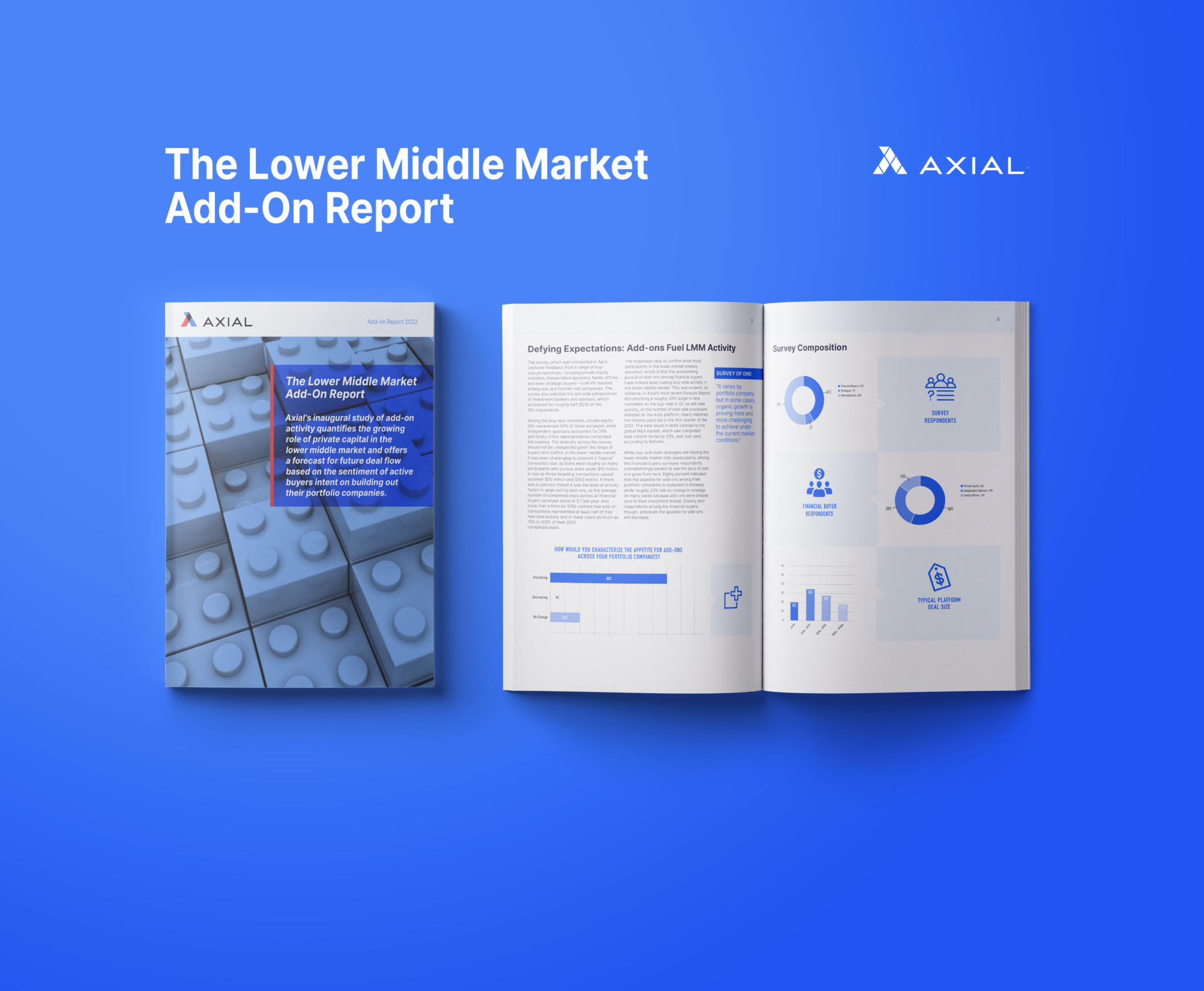
Introducing The Lower Middle Market Add-On Report
A survey of 150 deal professionals across the Axial network documents the extent to which financial sponsors have descended upon…
In the first part of a series on the future of the industry, we’re looking at one of the trends we expect to see continue as we approach the next decade of private equity: specialization.
The past several years have seen a resurgence of the private equity specialist. Much like the way the industry began before mega funds and big buyouts started to steal the headlines, funds are becoming narrower in their sourcing and strategy, focusing on making operational improvements to their portfolio companies and acquiring deep sector expertise to do so.
A recent survey found an overwhelming majority of PE executives believe that specialization will be one important brushstroke that helps to paint the future picture of the private equity industry. As the investor community becomes laser focused on performance, limited partners are taking a data-driven approach to manager selection. With specialist funds outperforming their generalist counterparts every year from 2001 to 2010, many firms are beginning to undertake specific investment strategies, or hone in on acute sector or geographical focuses to reap the competitive rewards.
A study by Cambridge Associates which unearthed the performance differences between specialists and generalists found that the former returned 2.2x multiple on invested capital (MOIC) and a 23.2% gross internal rate of return (IRR) between 2001 and 2010, beating out generalist funds who invest in the same sectors and returned 1.9x MOIC and 17.5% gross IRR.
Winning at the Deal Table
While there’s been some concern within the industry that funds with such narrow focus may be forced to ignore market cycles, investing when they shouldn’t, others argue that specialists are much more in tune to macro industry dynamics and better able to identify hidden value drivers that a generalist might otherwise overlook. The same Cambridge study found that since 2004, generalists actually put more capital to work in higher valuation environments using public market valuations as a proxy, while specialists exhibited better discipline through different market cycles.
Regardless, when it comes to getting to the negotiation table — an increasingly competitive goal in a marketplace flush with capital but limited on supply — specialists may see their focus help win deals. In a seller’s market, business owners have the luxury of choice when identifying the best fit buyer for their company. These would-be portfolio companies are keen on finding private equity groups with the ability to not only offer them the best price but the ability to contribute post-transaction, especially when the seller is retaining an ownership stake in the business. The resources, relationships and expertise that come with specializing in a given area offer private equity firms a competitive advantage to others who may not have the same tools at their fingertips.
Staying Ahead of the Curve
The next decade of private equity will likely see the entire PE spectrum pick up on the specialization trend — with big firms starting sector-specific teams and funds while mid-sized players and new entrants gravitate toward what their best at. No matter the size, firms who decide to jump on the bandwagon will have two major priorities if they wish to compete with those who have been long in the game. Marketing a firm’s chosen expertise or new fund will prove the first challenge. In an industry increasingly characterized by “masters of one”, the question will soon become how to stand out.
As more and more funds turn toward this route, certain roles within funds will become essential. The specialist movement is likely to result in an increase in the number of Operating Partners firms bring on, in addition to the industry’s use of advisory firms and consultants to leverage deep relationships and knowledge in a given sector.
The specialization trend is also not limited to domestic shores. For overseas funds, who have long tried to compete with the U.S. powerhouse of private equity, specialization has become a point of survival of late.
Specialization matters to the future of private equity because it has been shown to enhance each step of the transaction process. LP’s are more confident and willing to give funds, and sellers are more enticed by buyers who know what they’re doing. With focus and niche experience the new name of the game, deal teams can do what has become second nature: build businesses to generate outsized returns.
